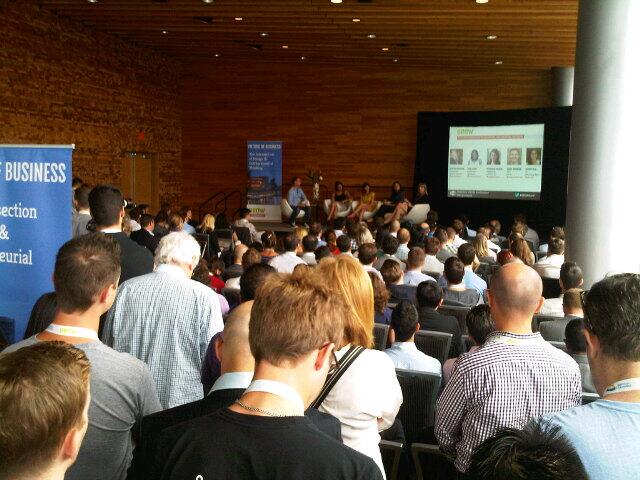GROW Conference 2013 kicked off in Vancouver and promised to be the best 3-day startup event yet. Below are some highlights from day one.
Google: Build and test products in five days
There are good and bad ways to go about developing an idea into a product, opened Daniel Burda, design partner at Google Ventures. Google’s investment arm has strict tips for its portfolio companies: you should be able to prototype, test and “ship” a product in five days.
Start your Monday by getting to know your market. Then sketch out all possible product prototypes. And no, this doesn’t mean a group brainstorming session. Jake Knapp, the second design Partner at Google, recommended sending team members to develop their ideas individually, and then letting the team decide on the best idea. Then build your prototype. And finally, come Friday, you should be ready to test it.
Or as Knapp put it a bit more bluntly, “quit wasting your time on products that suck.”
Venture words of wisdom before signing up for that accelerator
Trusted advisors that can vouch for a team, their product and work ethic, matter a whole lot more than a demo day win, said investor Kristina Kerr Bergman, partner at Ignition Partners, a Seattle-based venture capital fund, on Wednesday’s all-female panel on the next generation of venture capital.
The risk of a demo day pitch is that it can be too polished, said Shivon Zilis, VP at Bloomberg Venture. Good ideas in can be by nature, unsexy, added Zilis, pointing to startups in the less-consumer oriented enterprise space.
“There are top accelerators that we may do a deal with, but we’re more likely to connect through a warm introduction,” said Stephanie Palmer, VC at Softech
Moreover, high-profile accelerators may require young companies to give away equity early in the game. “You can get great feedback and build your network,” says Kerr Bergman, “but try not to give up equity.”
Super-angel Boris Wertz shared his cheat sheet on building a $100-million business (clue: there’s only two ways to get there)
Startup on your mind? Better know how to get stuff done
No one said it’s fun to be a CEO. A Wednesday afternoon panel of three startup founders – that have all seen their companies grow leaps and bounds. But long hours and mastering steep learning curve only yield results if founders keep one maxim in mind: get sh*t done.
“It starts with knowing your market,” said Scott Kveton, CEO of Urban Airship. Your company’s potential to grow is a function of who you’re targeting.
“The job of a CEO is not to do everything,” said Kveton, “but to make sure that everything gets done.”
Put your customers first, said Patrick Lor, CEO of Dissolve. That first and foremost means knowing that your team knows your product inside and out. “some of the failures we had early in our company, were that we weren’t using our own site,” said Lor.
“It means a lot for you to reach out to your customers. That ten minutes when you are waiting in a security line – just shoot off fifty emails,” added Wong.


